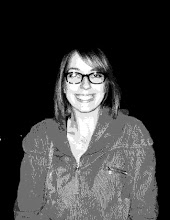It is one of the most frequently visited, maintained and updated innovations available through the world wide web. Although not always upheld by its users, there is some form of a code of conduct and a common protocol that regulates the establishment o this online city. The metropolis has interesting connotations. I imagine a metropolis as a site of buzzing of buzzing interaction, hectic traffic, constant stimulation and raised level of progression. Wikipedia has "millions of visitors and hundreds of thousands of volunteers" and an "ever-expanding total of articles and languages spoken". Wikipedia, unlike traditional cities, is not defined by physical or geographical boundaries. Its contextual source, the web, has accelerated its exponential growth. It reaches worldwide, across cultures and remains open to all users. It is truly the landmark of web 2.0. So what is the growth capacity of this city? Could it become so expansive and be edited and tweaked so many times that users no longer have worthwhile content to add?
In my annotated bibliography I evaluated the rise of online journalism and its assets comparative to traditional journalism generated by professionals rather than everyday citizens. Citizen journalism uses outlets like wikipedia and online user-friendly news sites to generate an open forum of news, research and personal response. If these sites are open-source it falls on every user to regulate and police the content. Wikis like wikipedia follow a general code. "Wikipedia encourages contributors to mimic the basic civility, trust, cultural acceptance and self-organizing qualities familiar to any city-dweller". Wikipedia citizens can see records of amendments made to their virtual city and navigate in almost any direction though its content. Traffic at least will not be a hindrance to this online metropolis, the more traffickers the better. More visitors and navigators to tis thriving city means more citizen police, so the more popular articles or controversial articles will get more views and be better tweaked.

It is a really fascinating metaphor. The word metropolis certainly does bring certain images to mind. You've made some really interesting points here.
ReplyDelete